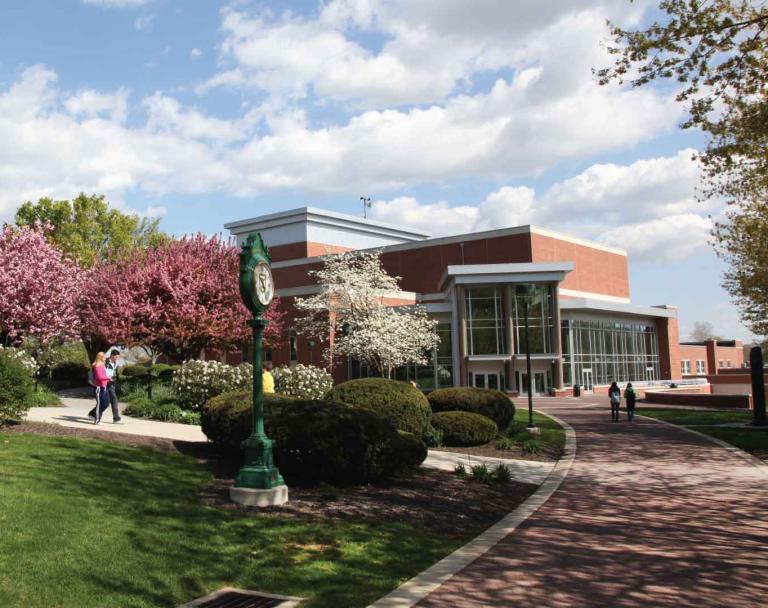Designed for Action: Student Builds on Sustainability Work and Explores Recycling Possibilities in Co-Op

Designed For Action: Student Builds on Sustainability Work and Explores Recycling Possibilities in Co-op
April 07, 2022At York College, students aren’t just reading textbooks and listening to lectures. They’re working on community projects, solving real-world problems, and using their education to effect change. In Designed for Action, we meet the students who are making an impact outside of the classroom.
Spencer Smith ’22 is concerned about the environment, and that has led him to research opportunities in the classroom as well as outside class in Costa Rica and Scotland. In his view, taking action to help keep our environment clean is a no-brainer, and that’s exactly what he got to do in a co-op.
Committed to Recycling
During a co-op with Waste-Not Technologies in the fall of 2021, Spencer, a Civil Engineering major with a minor in Sustainability and Environmental Studies, was able to give back to his hometown of Bethlehem, Pennsylvania. “A lot of work in the field of sustainability is brand-new, so most of my work has been trailblazing,” he says. “My co-op was with a small business, one that does not have the funds to do the massive research and development needed for large-scale issues such as recycling. Because of this, there were many times my boss and I needed to put our heads together and make do with what we had at our immediate disposal.”
He was in charge of assisting the head of the company. “The specific task we had for the fall,” he says, “was to work on a new system to process a mixture of plastic and paper. The two needed to be separated so we could use the plastic and salvage the paper to ship to a paper recycling plant.”
He also helped engineer new blends of plastic material for a new line of plastic fence rails. After completing coursework through his co-op in Introduction to Plastics and Polymer Processing, Spencer was well positioned to assist the company in creating an altered plastic blend for a new type of plastic lumber.
Building on His YCP Research
Spencer chose this co-op because of the focus on sustainability and recycling. His experience at the College ably prepared him for working at Waste-Not Technologies. During his time at YCP, he took a class in Sustainability: Linking Science and Society, which led him to a research trip in Costa Rica, where he first learned about recycled plastic lumber.
In November 2021, Spencer was selected as one of 10 students chosen to represent the American Chemical Society (ACS) at COP26, the 26th international gathering known formally as the Conference of the Parties, or the United Nations Framework Convention on Climate Change, in Glasgow, Scotland.
Having built up a strong research background at York College, Spencer recognized the co-op as another opportunity to further his recycling work. The plant was located close to his home, and he was able to be flexible with his spare time. He firmly believes in spreading the word about sustainability and is excited to see more people supporting the fight for a clean environment.
Working for a local co-op gave him the freedom that allowed him to attend COP26, as well as guest lecture at YCP and his high school. His first guest lecture at the College was for a class taught by Civil Engineering professor Paul Ackerman. This came about because Spencer mentioned how his ACS COP research was close to what was taught in class, and Dr. Ackerman asked him to speak about it. Spencer also lectured about his research at high schools in his former school district, at Lehigh University, and even for a local chapter of the GreenFaith Circle, a multifaith climate and environmental community. When the head of Waste-Not Technologies heard of his lectures, he asked Spencer to take a group of students through the plant and teach them about how they recycled plastic.
Continuing to Give Back
Spencer intends to continue working for a cleaner environment. “I feel that my co-op helped hone in my sustainability interests with respect to my career,” he says. “I feel I was able to learn where I felt more comfortable working, and what types of projects I was most successful working on. This has helped lead my pursuit of an environmental engineering career.”
Categories
